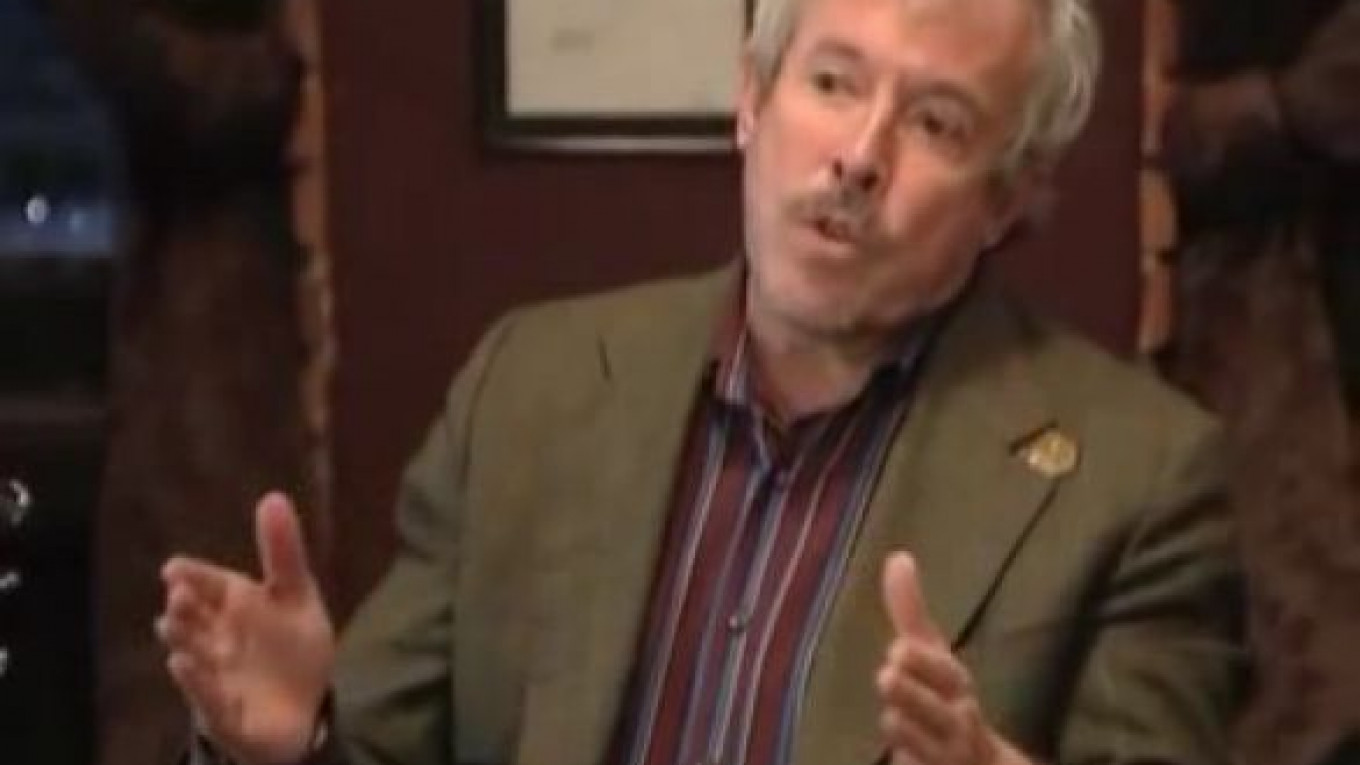Andrei Makarevich, lead singer of rock band Mashina Vremeni, has complained about “numerous distortions and inaccuracies” in the coverage of his and other musicians’ meeting with President Dmitry Medvedev in a letter to the St. Petersburg Times.
Makarevich was responding to the paper’s Oct. 15 article about the meeting, which included Boris Grebenshchikov of Akvarium, at Moscow’s Rhythm and Blues Cafe.
The St. Petersburg Times is owned by Independent Media Sanoma Magazines, which also publishes The Moscow Times.
The article alleged that the musicians were “carefully picked” because of their loyalty to the nation’s leadership, citing Mashina Vremeni’s “pro-Kremlin concerts” as evidence of the band’s support. Mikhail Borzykin of Televizor was quoted as calling the artists “the Kremlin pool’s rock musicians” and mocking the “infantile timidity” of the questions they posed.
The meeting was set up by Vadim Samoilov of Agata Kristi, who in 2003 recorded an album with lyrics written by Vladislav Surkov, the presidential administration’s first deputy chief of staff.
In 2005, Surkov held an infamous “secret meeting” with several rock musicians, including Grebenshchikov.
Makarevich staunchly denied that any political purpose motivated the recent gathering. In his letter, he said he had invited his “close friends” to the event, without considering their political beliefs, and maintained that the band had staged a concert to commemorate the end of elections, rather than in honor of the Kremlin.
He also defended his “politeness” during the gathering as a normal form of deference to a head of state and declared that his questions about the Bychkov prison and Khimki forest touched on serious issues.
“Any way you look at it,” he concluded, “the idea of the country’s president asking to visit the musicians whose music he grew up with doesn’t horrify me. It’s unfortunate that, because of the political situation, people try to pigeonhole us into two camps — one black, one white.”
A Message from The Moscow Times:
Dear readers,
We are facing unprecedented challenges. Russia's Prosecutor General's Office has designated The Moscow Times as an "undesirable" organization, criminalizing our work and putting our staff at risk of prosecution. This follows our earlier unjust labeling as a "foreign agent."
These actions are direct attempts to silence independent journalism in Russia. The authorities claim our work "discredits the decisions of the Russian leadership." We see things differently: we strive to provide accurate, unbiased reporting on Russia.
We, the journalists of The Moscow Times, refuse to be silenced. But to continue our work, we need your help.
Your support, no matter how small, makes a world of difference. If you can, please support us monthly starting from just $2. It's quick to set up, and every contribution makes a significant impact.
By supporting The Moscow Times, you're defending open, independent journalism in the face of repression. Thank you for standing with us.
Remind me later.






